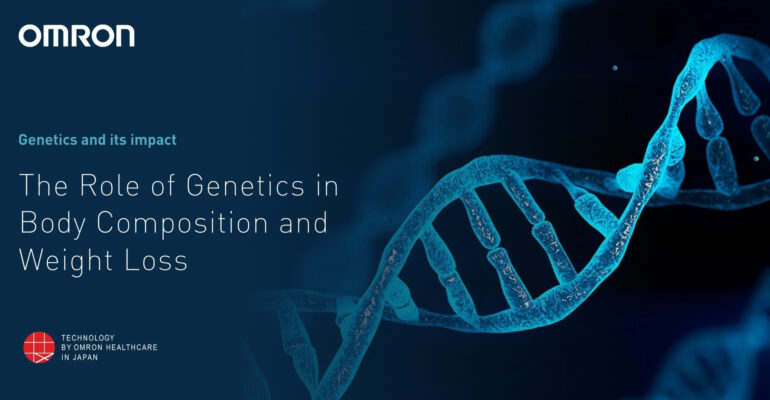The Role of Genetics in Body Composition and Weight Loss
January 7, 2024 2024-03-20 15:02The Role of Genetics in Body Composition and Weight Loss

The Role of Genetics in Body Composition and Weight Loss
In the pursuit of achieving and maintaining a healthy body weight, individuals often explore various avenues, from adopting different dietary approaches to engaging in regular exercise routines. However, one crucial factor that significantly influences body composition and weight loss that is often overlooked is “Genetics”.
The interplay between our genes and environmental factors plays a pivotal role in determining how our bodies store and burn fat, respond to different diets, and ultimately impact our weight management efforts.
Genetics and Body Composition:
The complex relationship between genetics and body composition involves multiple genes, each contributing to various aspects of metabolism, appetite regulation, and fat distribution. Studies have shown that genetic factors can influence an individual’s susceptibility to obesity and their body’s response to different weight loss interventions. Certain genes may affect metabolism speed, making some people more prone to storing fat, while others may have a natural tendency to burn calories more efficiently. Additionally, genetic variations can influence factors like hunger hormones, making some individuals more predisposed to overeating.
Genetic Predisposition to Obesity:
While genetics can contribute to obesity risk, it is essential to understand that environmental factors, such as diet and lifestyle, also play a significant role. Individuals with a genetic predisposition to obesity may find it more challenging to maintain a healthy weight, but adopting a balanced diet and an active lifestyle can still have a positive impact on overall health.
The Impact of Genetics on Weight Loss:
When it comes to weight loss, the genetic component continues to influence how individuals respond to different dietary approaches and exercise regimens. Some people may see significant results with certain diets, while others may struggle to achieve the same outcomes. This variability highlights the importance of personalized approaches to weight management that consider genetic factors.
Nutrigenomics: Personalized Nutrition Based on Genetics:
Advancements in the field of nutrigenomics have paved the way for personalized nutrition plans based on an individual’s genetic makeup. By analyzing specific genetic markers, experts can tailor dietary recommendations that align with an individual’s unique metabolism and nutritional needs. This personalized approach not only enhances the effectiveness of weight loss interventions but also promotes overall health and well-being.
Exercise Response and Genetic Variability:
Genetics also plays a role in how individuals respond to exercise. Some people may experience faster and more noticeable improvements in body composition and weight loss through certain types of physical activity due to their genetic predispositions. Understanding these variations can help individuals choose the most suitable exercise routines for their unique genetic makeup, optimizing the benefits of their efforts.
The Ongoing Research on Genetics and Weight Management:
As scientific understanding of genetics continues to evolve, ongoing research is uncovering new insights into the intricate relationship between genes and weight management. Identifying specific genetic markers associated with obesity and weight loss response holds the promise of developing more targeted and effective interventions, ultimately helping individuals achieve and maintain a healthy body weight.
Omron Body Composition Monitors:
In the quest for accurate and comprehensive body composition analysis, technology has played a crucial role. Omron offers advanced body composition monitors that go beyond traditional scales. These devices provide insights into various metrics such as body fat percentage, muscle mass, and visceral fat, offering a more comprehensive understanding of one’s body composition.
Omron’s body composition monitors utilize bioelectrical impedance analysis (BIA) technology to measure the electrical impedance of body tissues. This information is then used to estimate the body’s composition, providing valuable data for individuals seeking a more detailed understanding of their physical health. With the ability to track changes in body composition over time, these monitors offer a valuable tool for those embarking on a weight loss or fitness journey.
Conclusion:
By embracing a holistic approach that considers genetic and environmental factors, individuals can navigate their weight loss journey more precisely and achieve lasting success in maintaining a healthy lifestyle.






